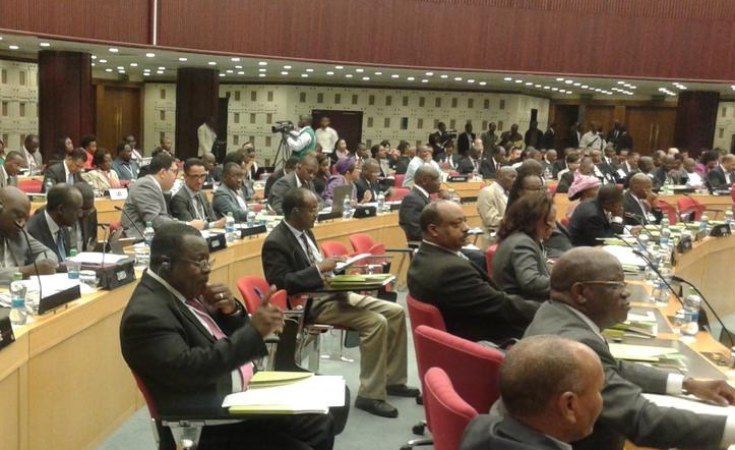Addis Ababa — Africa has been urged at high-level talks in Addis Ababa to mobilize its own resources to achieve its development goals.
“There’s a recognition that the continent needs to tap within its own wealth to finance its own development”, said Ethiopia’s State Minister of Finance and Economic Development, Abraham Tekeste. Although finding finance for development is a challenge, he added, “domestic resource mobilization is the viable option we have at our disposal”.
He was speaking during the annual joint gathering of the African Union (AU) and the United Nations Economic Commission for Africa (Uneca) taking place in the Ethiopian capital.
Scores of delegates filled a room at the United Nations Conference Center in Addis Ababa for the opening session of what has been dubbed the committee of experts, a group of technocrats appointed by the AU to advise members on the implementation of “Agenda 2063” – the development strategy adopted at the organisation's 50th anniversary.
Tekeste was among a number of speakers who urged government representatives to “domesticate” the agenda.
Africa doesn’t just need funds, he said, but should channel them to where they can be most effective. “Currently, the largest share of Africa’s infrastructure funding comes from national governments,” he added, and urged stakeholders to continue on this path by ensuring that Agenda 2063 is “reflected in national and regional planning frameworks”.
The deputy secretary of Uneca, Abdalla Hamdok, who also spoke at the event, extolled the progress the continent has made over the years: “It’s now common knowledge that [Africa] has enjoyed consistent and remarkable economic growth rates for nearly two decades”. Hamdok said this achievement has earned the continent the “enviable classification” as one of the world’s fastest growing regions. He said that notwithstanding recent “unfavorable events”, such as the outbreak of Ebola in West Africa, “the scales are tipped for a continuation of Africa’s good economic performance”.
Other speakers highlighted the importance of utilizing the right sets of local skills. This was the focus of a session hosted by the African Capacity Building Foundation (ACBF), which emphasized the imperatives of training and retaining African professionals. “We have the capacity, but either they are not being properly utilized or we can’t retain them,” lamented the executive secretary of the ACBF, Emmanuel Nnadozie. With other panelists, he urged schools to give instruction based on “what Africa needs”.
Delegates were urged to focus on the upcoming generation if the 50-year vision was to be realized. “We must [also] talk about Agenda 2063 to those who are ten years old,” the co-ordinator of the organisation, Capacity and Development Services, Samuel Nyambi, advised. He likened the continent’s capacity challenge to putting your hands around an elephant. “You are unable to do that; so you put your hands around one small part.”
Other headline events expected at the conference include a meeting of African ministers of finance, planning and economic development, which convenes on Monday. It will be preceded by a gathering of the African Forum, an informal assembly of former African heads of state. Hundreds of delegates are attending this year's gathering.


